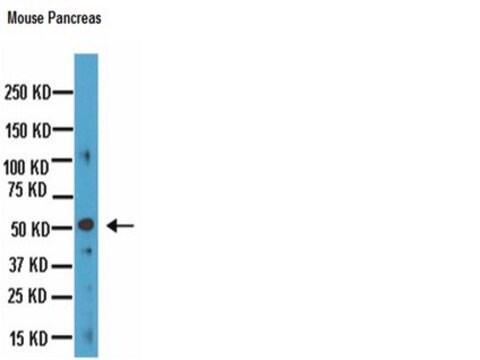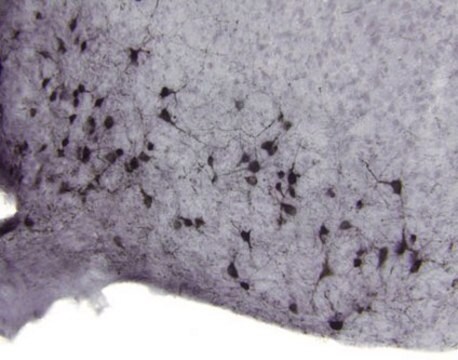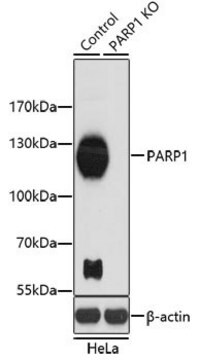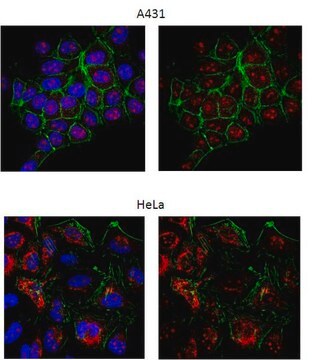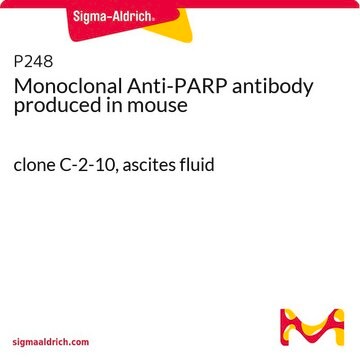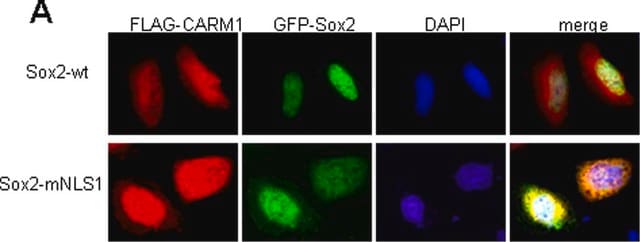MABS502
Anti-CYP11B1 Antibody, clone 80-7
clone 80-7, from rat
Synonym(s):
Cytochrome P450 11B1, mitochondrial, CYPXIB1, Cytochrome P-450c11, Cytochrome P450C11, Steroid 11-beta-hydroxylase, CYP11B1
About This Item
Recommended Products
biological source
rat
Quality Level
antibody form
purified antibody
antibody product type
primary antibodies
clone
80-7, monoclonal
species reactivity
human, rat
technique(s)
immunohistochemistry: suitable
western blot: suitable
isotype
IgG2aκ
NCBI accession no.
UniProt accession no.
shipped in
wet ice
target post-translational modification
unmodified
Gene Information
human ... CYP11B1(1584)
General description
Immunogen
Application
Signaling
Signaling Neuroscience
Western Blotting Analysis: A representative lot detected transfected CYP11B1 in HEK293 cells and endogenous CYP11B1 in mitochondrial preparation from human adrenocortical cell line HAC15 (Gomez-Sanchez, C.E., et al. 2014 Mol. Cell. Endocrinol. 383(1-2):111-117).
Immunohistochemistry Analysis: A representative lot detected CYP11B1 in normal human adrenal tissue.
Quality
Western Blotting Analysis: 0.5 µg/mL of this antibody detected CYP11B1 in 10 µg of PC12 cell lysate.
Target description
Physical form
Storage and Stability
Other Notes
Disclaimer
Not finding the right product?
Try our Product Selector Tool.
Storage Class Code
12 - Non Combustible Liquids
WGK
WGK 1
Flash Point(F)
Not applicable
Flash Point(C)
Not applicable
Regulatory Listings
Regulatory Listings are mainly provided for chemical products. Only limited information can be provided here for non-chemical products. No entry means none of the components are listed. It is the user’s obligation to ensure the safe and legal use of the product.
JAN Code
MABS502:
Certificates of Analysis (COA)
Search for Certificates of Analysis (COA) by entering the products Lot/Batch Number. Lot and Batch Numbers can be found on a product’s label following the words ‘Lot’ or ‘Batch’.
Already Own This Product?
Find documentation for the products that you have recently purchased in the Document Library.
Our team of scientists has experience in all areas of research including Life Science, Material Science, Chemical Synthesis, Chromatography, Analytical and many others.
Contact Technical Service
